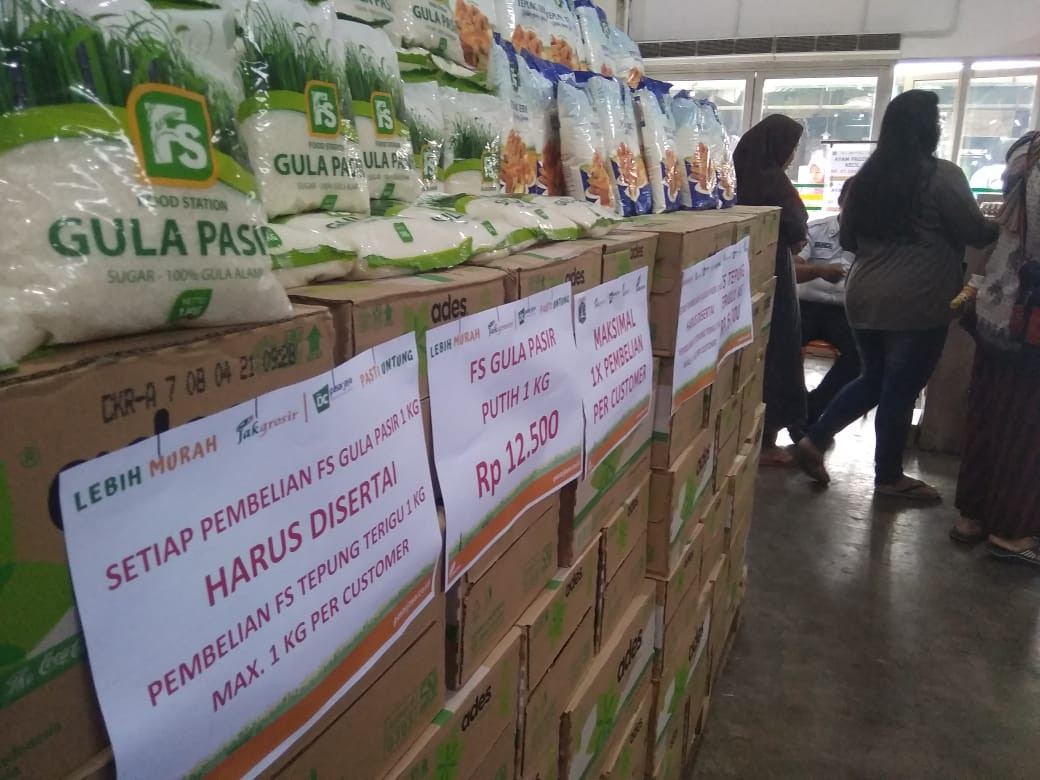Popular Reads
Top Results
Can't find what you're looking for?
View all search resultsPopular Reads
Top Results
Can't find what you're looking for?
View all search resultsCoronavirus threatens Idul Fitri food supply as import regulations tightened
The tightening of import procedures to prevent the spread of the novel coronavirus from aboard has partly caused shortages in commodities such as sugar and garlic.
Change text size
Gift Premium Articles
to Anyone
T
he government needs to further simplify import procedures for basic needs such as sugar, meat and garlic to ensure sufficient supplies during Ramadan and the Idul Fitri holidays, when demand increases sharply, analysts and businesspeople have warned.
The tightening of import procedures to prevent the spread of the novel coronavirus from aboard has partly caused shortages in commodities such as sugar and garlic.
The government has repeatedly claimed it could meet demand during the festivities. But Institute for Development of Economics and Finance (Indef) researcher Rusli Abdullah has expressed doubt over such claims, citing soaring sugar prices.
Due to the current shortage, the national average price of sugar was Rp16,450 (US$1.13) per kilogram as of March 12.
“The government must intervene,” Rusli said “The risks that we may face include price spikes prior to and during the fasting season as well as during Idul Fitri,” he said.
The demand for basic needs, especially food, usually increases sharply during the fasting month, which is expected to begin on April 24. The demand will peak during the Idul Fitri holidays, which will be held after the end of the fasting month.
As of March 3, the Trade Ministry said in a release that it had issued import permits for 428,802 tons of sugar, which is expected to fulfil domestic demand until May. The Food Resilience Agency (BKP) has also proposed importing 130,000 tons of white sugar from India, while the State Logistics Agency (Bulog) also proposed importing another 200,000 tons of sugar.
However, Rusli said the COVID-19 pandemic could disrupt future imports, as the government tightened regulations on imported products to prevent the spread of the deadly virus from abroad.
He urged the government to request exporting countries to provide assurances that their shipping crews were healthy enough to travel to Indonesia.
Rusli is not the only person to raise such concerns. Indonesian Chamber of Industry and Commerce (Kadin) chairman Rosan Perkasa Roeslani said in Jakarta on March 12 that while the current supplies would suffice until Idul Fitri, the government needed to improve coordination and its bureaucracy to accelerate the issuance of import licenses to assist price stabilization efforts.
"Don’t let this problem put people at a loss," Rosan said in a press conference in Jakarta on Thursday.
Import delays have impacted the supply of garlic this year. The Trade Ministry has only issued import permit permits for 25,829 tons of the 103,000 tons recommended by the Agriculture Ministry. Food Resilience Agency (BKP) head Agung Hendriadi said in late February that the ministry needed to issue a permit for at least 80,000 tons of garlic to meet domestic needs, considering that monthly garlic consumption reached 46,000 tons.
The national average garlic price was recorded at Rp 44,400 on March 12, nearly double the usual Rp 25,000 to Rp 30,000 per kg, according to the Information Center for Strategic Food Prices (PIHPS). Average retail prices have been stuck around Rp 40,000 to Rp 50,000 for the last two months.
Onion prices have also increase, with Vegetable and Fruit Importers and Exporters Association (Aseibsindo) data showing that retail prices for the commodity leaped to Rp 170,000 per kg in March, a sharp increase from Ro 62,500 in February and Rp 35,500 in January amid the commodity's increasing scarcity.
Trade Ministry Foreign Trade Director General Indrasari Wisnu Wardhana told Kontan on Wednesday that the government had just issued an import permit for 2,000 tons of onion from New Zealand.
Meanwhile, Trade Minister Agus Suparmanto said in press releases in February that issuing import permits and coordinating with regional authorities were among the ways it could maintain supplies for the Idul Fitri holidays. The releases also noted that it had temporarily halted live animal imports from China through a ministerial regulation to prevent the spread of the coronavirus.
“We need to anticipate these situations in advance so that people can worship in peace, without the burden of rising food prices or scarcity of goods,” Agus said.










